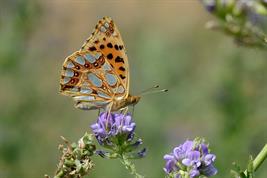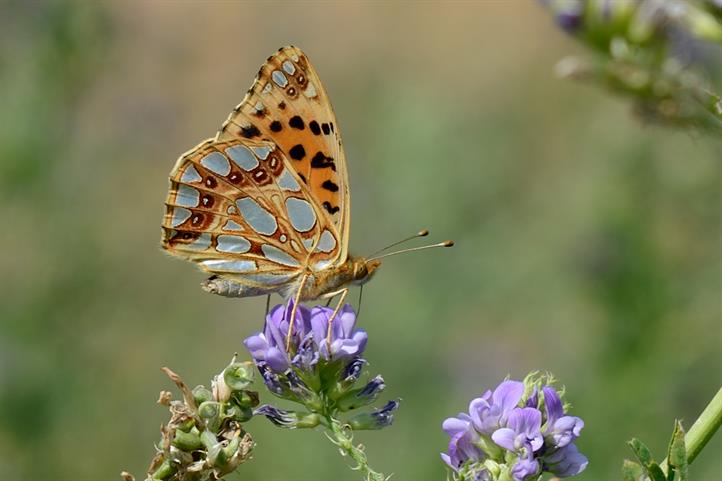19.02.2019
Press Release

What are the benefits of organic farming for the environment and society? This question was posed by scientists in a recent study published by the Johann Heinrich von Thünen Institute, the Federal Research Institute for Rural Areas, Forestry and Fisheries. The Leibniz Centre for Agricultural Landscape Research (ZALF) was responsible for the topics related to “Biodiversity”. 75 studies from 26 countries were evaluated.
Dr. Karin Stein-Bachinger, Almut Haub and Frank Gottwald from ZALF analysed the effects of organic agriculture on arable flora, field margin vegetation, field birds and flower-visiting insects in comparison with conventional farming for their contribution to the current Thünen Report 65. 86 % of the pairs of comparisons described in the studies indicated clear benefits for vegetation. Animal species benefited in 49% of cases. The team sees the main reasons for this in the severe restriction of external inputs, such as the renunciation of mineral nitrogen fertilizers, synthetic pesticides, as well as the optimized recycling.
Structural elements in the surrounding landscape, such as hedges and field margins, which are used by many species as partial habitats, also have a significant influence on biodiversity. They can have a significant impact on the effects of land use. However, within the framework of comparative studies between organic and conventional farming, there only have been few studies on this subject until now.
For their study, Stein-Bachinger and her team identified 801 studies that appeared on this topic between 1990 and 2017. On the basis of strictly defined criteria, 75 studies were selected and the 312 comparison pairs described were statistically evaluated. The team looked at the species richness and abundance with which individual species occurred.
The results show that organic farming can reduce various environmental impacts at the same time and thus makes a relevant contribution to solving current environmental and resource policy challenges. “The studies also show our increased knowledge of the causal relationships between management measures on the one hand and impacts on the environment and biodiversity on the other”, says Prof. Frank Ewert, Scientific Director of ZALF. However, it is important to continue research on the influence that the surrounding landscape structure, in particular, has on the biodiversity of cultivated areas and the interactions that exist, according to Ewert.
The Thünen Institute, the University of Kassel, the Bavarian State Institute for Agriculture, the Justus Liebig University of Giessen, the Leibniz Centre for Agricultural Landscape Research (ZALF), the Technical University of Munich and the Centre for Applied Research and Technology at the Dresden University of Applied Sciences were involved in the preparation of the Thünen Report. It is a comprehensive inventory of current scientific studies on the benefits of organic farming for the environment and society. Fields such as water protection, soil fertility, climate protection and adaptation, resource efficiency and animal welfare were also assessed.
The project was funded by the Federal Ministry of Food and Agriculture (BMEL) as part of the Federal Organic Farming Scheme and other forms of sustainable agriculture (BÖLN).
The Thünen Report 65 is available as a PDF file at
www.thuenen.de
 Press Release as PDF
Press Release as PDF
Pictures
For downloading the pictures please click on a picture and use the icon.


Wild species of fauna and flora benefit from organic farming. This is the Queen of Spain fritillary.| Source: © Frank Gottwald / ZALF
